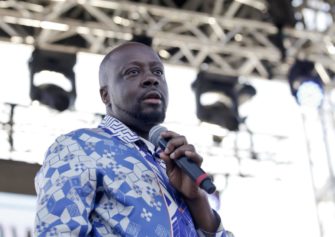Houston Person has made more records than you. Exactly how many more, it’s tough to say. But consider this: The soul-jazz innovator has been on this earth for 77 years, and he figures he’s released at least that many albums under his own name.
A tenor saxophonist of serious renown, Person first gained recognition as a recording artist in the ’60s on the Prestige label, home to jazz luminaries like John Coltrane, Miles Davis and Thelonious Monk. At the time, he was making his living as a sideman for Johnny “Hammond” Smith, and it was through the influential organist that he met singer Etta Jones, a fellow South Carolinan with whom Person would spend some 35 years recording and touring.
Although most famously associated with Smith and Jones, Person’s collaborations have been insanely prolific. “Somebody did a count, and I’ve recorded with about 75 vocalists,” says the jazz veteran. “I enjoy working with a lot of different horn and piano players, too. I don’t know what it is; I’m a chameleon, I guess.”
Person came of age at a time when jazz currents were shifting, with gospel and R&B influences slipping into the sound of pioneering artists like Les McCann, Gene Ammons and Cannonball Adderley. Meanwhile, record companies and critics were moving away from the term “hard bop” in favor of “soul jazz,” a transition that was as much about marketing as the music itself. After all, wasn’t soul music really just a more contemporary-sounding name for R&B?
“Right, and before that it was called ‘race music,'” says Person with a laugh. “There’s always labels, but I leave that to the writers. You know, somebody comes up with a name for it, and they see what sticks. Musicians just play music.”
As a kid, Person was more interested in sports than his piano lessons, but that would change soon enough. “My parents gave me a saxophone for Christmas when I was 14 or 15,” he recalls. “And that was the start of my addiction to the tenor saxophone.”
After studying music at South Carolina State College and Connecticut’s Hartt College of Music, he joined the U.S. Air Force Band and was stationed in Germany, where he would play the occasional club gig with Army band members Cedar Walton and Eddie Harris.
The sax addiction carried over to civilian life, with the musician typically recording two or three albums a year. “I’m still working at the same pace now…
Read more: Bill Forman, Colorado Springs Independent


